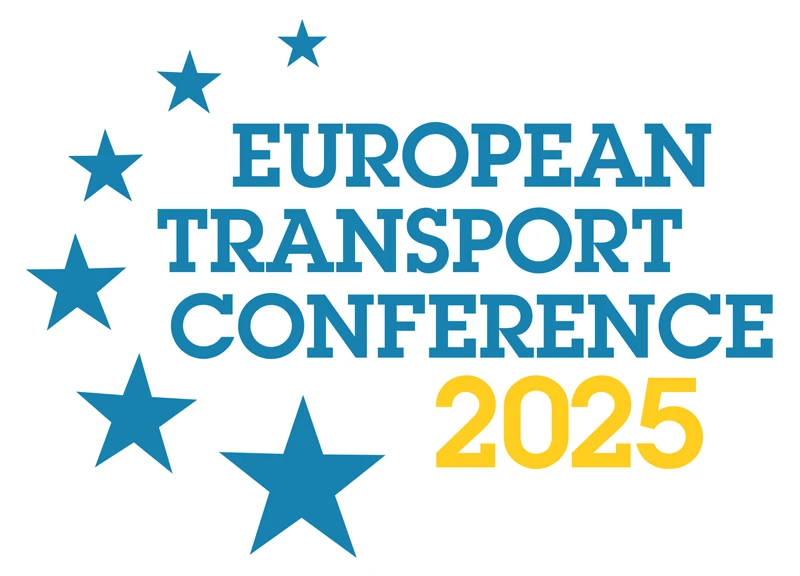-
Past ETC Papers

Browse, search and view papers from the past AET Conferences.
-
Members' Area

AET promotes networking and exchange of ideas, information and opportunities amongst members.
ETC Conference Papers
Conference Past Papers Repository
Understanding the distributional impacts of the low-carbon transition on transport workers: an interview study on the effects of electrification, digitalization, and automation
Seminar
Day 1 (6 Sep 2023), Session 3, Freight Decarbonisation Policy, 16:30 - 18:00
Status
Accepted, documents submitted
Submitted by / Abstract owner
Jindan Gong
Authors
Jindan Gong – Research Associate, Stockholm Environment Institute;
Maria Xylia, PhD – Research Fellow, Stockholm Environment Institute;
Claudia Strambo – Research Fellow, Stockholm Environment Institute;
Björn Nykvist, PhD – Senior Research Fellow, Stockholm Environment Institute
Short abstract
Electrification, digitalization and automation are key drivers for the transport sector’s decarbonization. This paper analyses the distributional impacts of these trends on workers in the Swedish transport sector through semi-structured interviews.
Abstract
The transport sector must rapidly transform to achieve ambitious greenhouse gas emissions reductions established in the Paris Agreement (Jaramillo et al., 2022). Three emerging trends are expected to drive the transport sector decarbonization: electrification, digitalization, and automation (Di Silvestre et al., 2018; Nykvist & Olsson, 2019). Dimensions of societal acceptance and political feasibility are crucial for the feasibility of sustainable transition pathways but often overlooked (Turnheim & Nykvist, 2019). Addressing them includes anticipating injustices and developing policies to mitigate those (Jenkins et al., 2018; Turnheim & Nykvist, 2019). Although there are studies on how technical changes affect the driver profession in commercial and freight transport (Alasoini et al., 2022; Kishore Bhoopalam et al., 2021; Wallengren & Ottoson, 2019), little is known about distributional impacts of the fossil-free transition on transport industry workers, such as drivers of light and heavy duty vehicles and taxi drivers. Transport planning and policy is also mostly expert-driven (Winslott Hiselius et al., 2020), and there is a need to better understand and recognize transport workers’ concerns and aspirations in the transition.
Our aim is to investigate the implications of electrification, digitalization and automation for transport workers in Sweden, and how these vary from a gender, age, and geographical perspective. We use Sweden as our case due to its ambition of becoming the world’s first fossil-free welfare society, with a transport sector target of 70% emissions reductions by 2030 compared to 2010 (Klimatpolitiska rådet, 2022). Additionally, there is a strong interest among trade unions in Sweden in engaging proactively on decarbonization (Landsorganisationen Sverige, 2018; Viredius & Odell, 2013).
Thus, in this paper, we present the results from a semi-structured interview study with drivers of trucks, delivery vehicles and taxis. In total, 18 interviews were conducted between October 2022 and December 2022. A set of guiding questions were developed to examine what drivers view as potential benefits and drawbacks of the three trends, focusing on health, safety, job security, identity, skill requirements and work organization. Purposeful sampling was used to recruit a diverse set of participants and capture a broad range of experiences. The interviews were analyzed using the qualitative software MaxQDA together with a grounded theory approach to inductively interpret patterns.
Results indicate that interviewees believe that electrification can improve their work environment by eliminating exhaust gases and reducing noise. Digitalization through advanced driver assistance systems (ADAS) and digital platforms can reduce administrative burdens and assist work (e.g., handling orders and planning routes).
At the same time, concerns are raised on losing jobs to automated vehicles and relying on ADAS could diminish drivers’ traffic awareness. According to the interviewees, charging could also add complexity to the already time-pressed schedules of drivers. Further, switching to the more maintenance free electric engine, and being less involved with driving in the case of automation can imply changes to the nature of the drivers’ tasks. As many of the drivers have pursued their profession because of a strong interest in engines and driving, this can affect their professional identities and lead to a wining interest in the driving profession. Perceived new risks, such battery fires also linger.
We find that age can influence the transition. Older drivers might face difficulties with new technology and remaining attractive in a competitive job market. Geographical and spatial factors can also play a role in how workers experience electrification due to charging infrastructure availability. Moreover, some female drivers see new technologies and innovation as an opportunity for more diversity in this traditionally male-dominated field.
In summary, the interviewees see benefits from electrification, digitalization, and automation but also express concerns if trends are not managed in a way considering their needs and professional aspirations. While some concerns could be alleviated by improved knowledge sharing, concerns about the added route planning complexity, implications on working hours and a changing professional identity are more difficult to address. The interviewees also express that decarbonization will bring significant changes to business models in these transport applications with small margins, creating additional pressure on workers.
Our findings can inform and support trade unions, governments, and businesses in designing policies and strategies to ensure a just transition for transport sector workers. Their inputs can help addressing special demand and contingencies resulting from decarbonization of various logistic and freight services. Understanding the implications of these trends is further relevant outside the Swedish context as well as for workers in other sectors undergoing decarbonization transitions. This study is part of the Stockholm Environment Institute’s project “Just Swedish Transport Industry Transitions (JUSTIT)” (shorturl.at/rwFX8).
Programme committee
Freight and Logistics
Topic
Supply chain challenges – impacts of labour and resource constraints in freight and passenger transport
Documents:

Association For
European Transport
Forester House
Doctors Lane
Henley-in-Arden
Warwickshire, UK
B95 5AW
+44 (0) 15 64 793552
VAT number: 710 1866 64
Conference Supporters & Endorsers




Legal Entity
The Association for European Transport is registered as an Association ('vereniging') with the Chamber of Commerce for Haaglanden in The Netherlands under company number 27170096.
Built on Zenario




